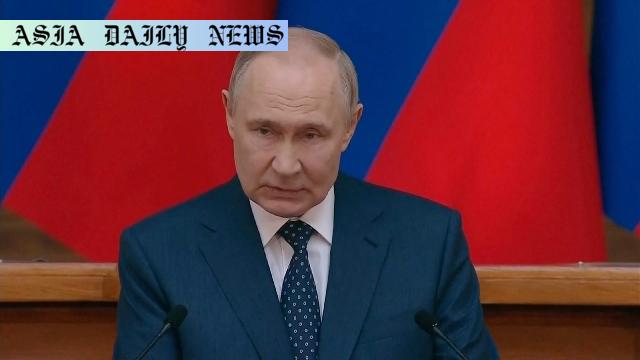Ceasefire: Russian President Vladimir Putin has declared a 3-day truce in Ukraine starting on May 8 to commemorate WWII victory.

Introduction
Russian President Vladimir Putin has announced a temporary ceasefire in Ukraine to take place from May 8 to May 10, coinciding with the 80th anniversary of the Soviet Union’s WWII victory. This three-day truce comes amidst ongoing conflict, raising both hope and skepticism among global leaders and citizens. While Putin urges Ukraine to adhere to the truce, he also warns of retaliation against any violations. The announcement has drawn mixed reactions, with some perceiving it as a gesture of goodwill and others questioning its sincerity.
The Significance of May 8 in Russian History
The date of May 8 holds significant historical importance for Russia, marking the victory over Nazi Germany during World War II. This day is often celebrated with parades, speeches, and national pride in honoring the sacrifices made by the Soviet Union during the war. Aligning this ceasefire with such a momentous occasion may symbolize a call for unity or peace. However, critics argue that this could merely be a political move to gain strategic advantage or public favor. The question remains if this truce will truly hold or collapse under the complex dynamics of the current war.
Ukraine’s Response and Global Reactions
Ukrainian Foreign Minister Andrii Sybiha took to social media to voice concerns, emphasizing the need for a permanent and comprehensive ceasefire. He highlighted the futility of waiting until May 8 for such efforts, suggesting Russia’s intentions might not be genuine. Similarly, U.S. President Donald Trump echoed the call for a lasting ceasefire instead of a temporary respite. His administration urged both sides to negotiate in favor of durable peace. These reactions reflect widespread skepticism over the feasibility and sincerity of this ceasefire. Past temporary truces, such as the Easter ceasefire earlier this month, saw breaches on both sides.
Challenges Facing the Ceasefire
The path to peace in any conflict is fraught with challenges, and this ceasefire is no exception. Ensuring compliance from all military factions operating on the ground in Ukraine is a daunting task. Miscommunication, lack of trust, and sporadic acts of aggression by independent groups can derail such well-intended measures. Moreover, the legacy of failed ceasefires lingers, with neither side fully trusting the other to abide by agreements. Criticism from political leaders worldwide underscores the need for deeper diplomatic dialogue that goes beyond short-term solutions.
The Call for Lasting Peace
The proposal of a 30-day or longer truce by Ukraine reflects a desire to establish a foundation for negotiations and eventual resolution. Short-term ceasefires, while beneficial in curbing immediate violence, often fail to address the root causes of conflict or build momentum toward peace. Only through sustained dialogue, trusted intermediary partners, and genuine commitment from both sides can a lasting resolution be achieved. The global community also has a role to play, with organizations like the UN or NATO possibly stepping up to mediate and ensure compliance on both sides.
Commentary
Rethinking Short-Term Ceasefires
Putin’s announcement of a three-day ceasefire is undoubtedly a positive gesture, albeit one met with significant skepticism. While short-term truces can provide brief respite to those in conflict zones, they often fail to bring any substantial change. This announcement seems to carry symbolic weight, aligning with a significant historical date. However, its timing and the conditions attached raise questions about genuine intentions. Time and again, during conflicts across the world, history has shown that long-lasting peace requires more than temporary pauses in hostilities.
The Role of International Diplomacy
In conflicts such as this, international diplomacy plays a pivotal role. Major global powers and organizations not only have the potential but the responsibility to step in and help mediate. Russia’s announcement, though unilateral, underscores the urgency of involving larger global players to bring both sides to the negotiation table for sustained dialogue. Without such oversight and guidance, even the most well-intentioned efforts may crumble under the weight of distrust and historical animosities.
A Hopeful Yet Cautious Outlook
Every step toward peace, however small, carries importance. This ceasefire, even with its limitations, could be a precursor to broader discussions. It presents an opportunity for the international community to push for more substantive ceasefires and peace agreements. Yet, caution must be exercised. Skepticism from leaders such as Ukraine’s Foreign Minister Andrii Sybiha is justified and reflects the challenges of navigating through layers of conflict and geopolitics. While embracing hope for peace, we must remain alert to the realities on the ground and the need for accountability from all parties involved.


